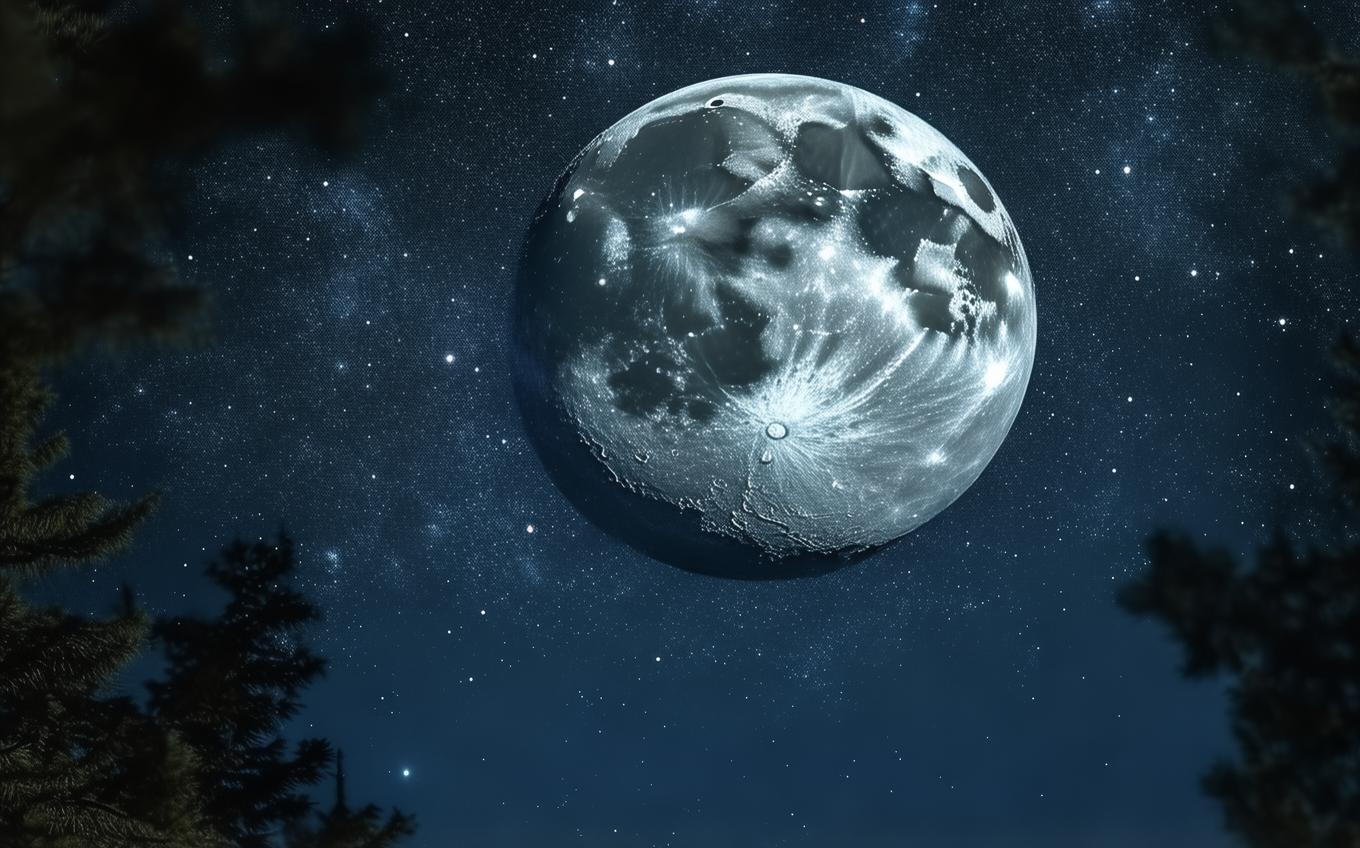Understanding "月亮" - Chinese Word Explanation
1. Basic Information
- Word: 月亮
- Pinyin: yuè liàng
- Literal Meaning: "moon bright"
- Primary Meaning: The moon (the natural satellite of Earth)
2. In-depth Explanation
-
Context and Usage:
"月亮" is the most common word for "the moon" in Mandarin Chinese. It is used in everyday conversations, poetry, and literature to refer to the moon in the night sky. Unlike the English word "moon," which is neutral, "月亮" often carries a poetic or emotional tone, especially in classical and modern Chinese art. -
Character Breakdown:
- 月 (yuè): Means "moon" or "month." It is also a radical used in many Chinese characters related to time or celestial bodies.
- 亮 (liàng): Means "bright" or "light." When combined with 月, it emphasizes the moon's luminous quality.
3. Example Sentences
-
Chinese: 今晚的月亮真圆。
Pinyin: Jīn wǎn de yuè liàng zhēn yuán.
English: The moon is very round tonight. -
Chinese: 她喜欢在月光下散步。
Pinyin: Tā xǐ huān zài yuè guāng xià sàn bù.
English: She likes to take walks under the moonlight. -
Chinese: 中秋节的时候,人们会赏月亮。
Pinyin: Zhōng qiū jié de shí hou, rén men huì shǎng yuè liàng.
English: During the Mid-Autumn Festival, people admire the moon.
Cultural Notes
In Chinese culture, the moon (月亮) holds deep symbolic meaning. It is associated with reunion, nostalgia, and beauty. The Mid-Autumn Festival (中秋节) is a major holiday where families gather to admire the full moon and eat mooncakes. Many classical poems, such as those by Li Bai (李白), use the moon as a metaphor for longing and solitude.
Conclusion
"月亮" (yuè liàng) is the standard word for "the moon" in Chinese, often evoking poetic and cultural significance. Remember it as "moon bright," reflecting its luminous and emotional resonance in Chinese language and tradition.




Comments (0)
No comments yet. Be the first to comment!